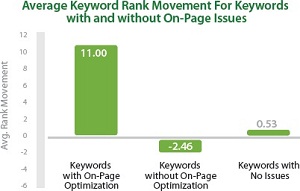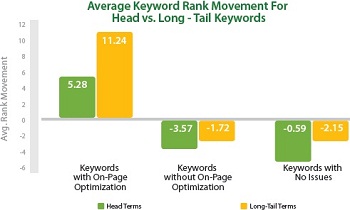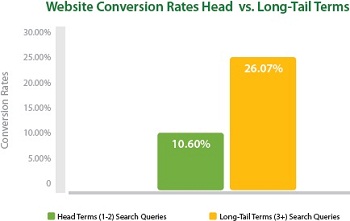When many people who work from home discussing about SEO, they are mostly referring to the off-page aspects of it (backlinks, in other words) but there are much more than that to SEO. In fact, when Google is referring to white hat SEO, it is mostly referring to the on-page aspects of it (as Matt Cutts explains)!
The importance of on-page SEO became even much more significant this year, since Google has implemented the Panda updates (the most recent Panda update was in November) into its algorithm which grants the site’s on-page elements much more significance. However, many marketers are still don’t reward on-page optimization a reasonable part in their marketing efforts.
If you aren’t convinced and completely understand why you should pay more attention for on-page SEO yet, i would like to talk about a recent study published by one of the leading SEO platforms online, Conductor. The study is measuring and analyzing the influence of on-page optimization on search rankings and comparing between short-tail (head) keywords and long-tail keywords.
Impact Of On-Page Optimization On Search Rankings
The study has revealed some astonishing stats and conclusions for the impact of on-page SEO on search rankings. On-page SEO is leading to a ranking improvement of 11 positions on average, while no on-page SEO is leading to a drop of 2.46 positions on average (to pages with optimizing issues)! Pages with no optimizing issues (it is on-page SEO in a way) gained 0.53 positions on average.

Comparing Short (Head) Vs Long Tail Keywords On-Page SEO
The study has examined the search rankings movement differences when executing on-page SEO for short (head) keywords and when executing on-page SEO for long tail keywords. The conclusion was very unequivocal- On-page optimizing is more than twice as much influential on long tail keywords than on short tail keywords.

Doing on-page optimization for long tail keywords is causing an improvement of 11.24 positions on average, while doing on-page optimization for short (head) tail keywords is causing an improvement of “just” 5.28 positions. It also works the other way around- Not doing on-page optimization is leading for a drop of 3.57 on average for short tail keywords and only for 1.72 positions on long-tail keywords.
Better Conversion Rate For Long Tail Keywords
The study has discovered another interesting stats (however, not so surprising) about the conversion rate of search terms- Long tail terms converts more than 2.5 times as much as short (head) tail terms! While the conversion rates for long tail terms was 26.06% on average, the conversion rate for short tail terms was only 10.6%. The reason for the huge gap is that visitors that arrives from long tail search queries are much more targeted towards the page.
